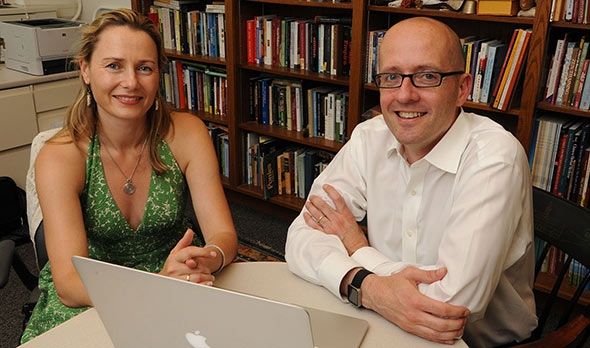Read the full story by Susan Green, published by the Geisel School of Medicine.
A team-teaching collaboration between a Dartmouth anthropologist and a Geisel School of Medicine infectious disease expert turned out to be an educational experience for both the students and the faculty.

In the spring of 2013, Sienna Craig, an associate professor of anthropology, and Tim Lahey, an associate professor of medicine at Geisel, worked together to teach an undergraduate class called “HIV Through a Bio Social Lens: 30 Years of a Modern Plague.” Geisel faculty have taught undergraduate classes individually, but the collaboration between Craig and Lahey was unusual, and the result of an informal process.
As a medical anthropologist, Craig focuses on the ways in which cultures and societies understand what “health” means and how they address illness, including the use of traditional forms of healing and conventional Western medicine. Through work treating and studying HIV in New Hampshire’s Upper Valley and places such as Tanzania, Lahey has bumped up against communication and cultural boundaries.
Given their interests, the two seemed bound to cross paths. And, indeed, one night while talking at the house of a mutual friend, they came up with the idea of teaching a class on HIV together. “We thought it would be interesting and important for undergraduates who participate in research, clinical work, and education abroad to be sensitized to cultural differences,” Lahey says.
Because Dartmouth students participate in a variety of global health experiences, Craig and Lahey decided that examining the social, cultural, and medical influences of HIV from the divergent perspectives of anthropology and medicine would enrich the undergraduates’ experience.